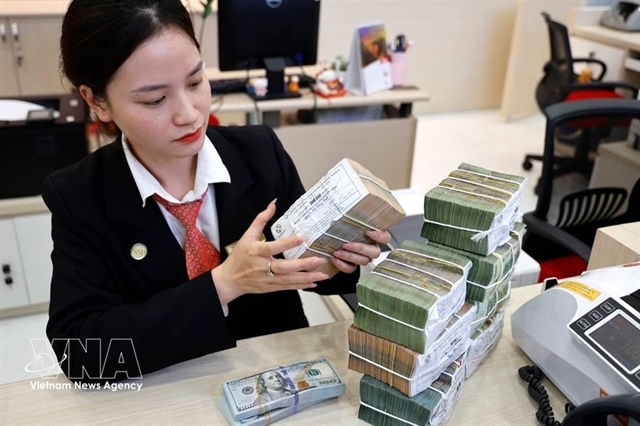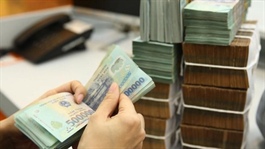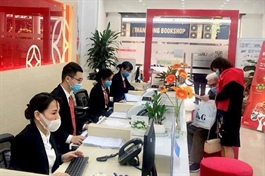Businesses seek stable tax policies for sustainable recovery in new normal
Businesses seek stable tax policies for sustainable recovery in new normal
Beverage businesses are calling for no tax increase to support them in the recovery path ahead, thus enabling them to develop more sustainably and contribute more to socioeconomic development.
The Vietnam Alcohol-Beer-Beverage Association (VBA) on May 6 held a seminar on the sector’s recovery and development in the new normal. The event attracted state management agencies, senior economists, experts, and organisations in the field.
During the seminar, participants focused on possible solutions and measures to facilitate businesses, thus contributing to an economic growth rate of 6.5-7 per cent in 2021-2025.
Challenges remain
As Vietnam is reopening its economy to facilitate business recovery, the economic picture is now brighter and more optimistic. According to the Ministry of Planning and Investment (MPI), driven by the growth momentum in the first quarter, economic development in April continues to be bright in almost all sectors and industries.
However, the MPI forecast that, in 2022, Vietnam will still face difficulties from the unpredictable developments of new COVID-19 variants, strict prevention and control measures from countries which border Vietnam, global inflation, and other factors.
Therefore, in order to obtain the economic growth rate of 6-6.5 per cent as set by the National Assembly, it is necessary to have an additional support package for businesses to help them recover, mainly focusing on fiscal policy, refunds, and tax refunds which are being implemented and to be implemented in the upcoming time.
Nguyen Van Viet, chairman of the VBA, said that like businesses in other sectors, those in the alcoholic beverage sector are still facing many negative impacts due to the pandemic.
Moreover, some regulations, including on the prevention and control of alcohol-related harm, and Decree No.100/2019/ND-CP, regulating strict fines for drunk driving still affect them as consumption has been reduced by 20-30 per cent. The Russia-Ukraine conflict also increasingly affected the sector due to the interruption of the global supply chain, and related fuel hikes.
Viet added that the sector’s production has yet to recover due to the interruption in the supply chain, rising input costs, and a lack of materials for production, among others.
Tax debate
However, businesses in the beverage sector are concerned about recent proposals on increasing the special consumption tax (SCT) for several products such as alcoholic drinks, tobacco, and others.
Some experts say that this is a suitable time for such a hike to protect people’s health, increase stage budget collection, and reduce social consequences. Others say that any proposal on increasing the burden on businesses in the next few years, such as an increase in SCT for alcoholic drinks and other products, needs to be carefully considered.
The VBA asked the government to consider flexible financial policies to facilitate the recovery ahead and develop stably and sustainably, thus meeting local demands, serving export, creating jobs, and contributing to the state budget.
Chu Thi Van Anh, vice chairman of the VBA recommended that policies should be kept stable, especially tax policies, for at least 3-5 years. The government should not increase the SCT.”
According to experts, businesses need stable and predictable tax policies for their development steps. Tax and fee burdens would also decrease the country’s market attraction and competitiveness.
Economists recommended that before any new policies on tax are issued, comprehensive assessments should be made about the possibilities of satisfying the set targets, and possible impacts of the existing policies among others to make a foundation for new proposals.
Economist Ngo Tri Long proposed, “An increase in SCT on beer and alcohol should only be considered from 2025 in line with the government’s action programme in Resolution No.54/NQ-CP dated April 12 on economic restructuring plan in 2021-2025.”
Businesses also recommended public consultancy for new rules, especially those subject to new changes to ensure their feasibility and in line with international practices.
According to experts, as the Vietnamese government is improving the business climate and national competitiveness, any change in the tax policy may hinder the efforts and increase burdens on businesses.
“The alcoholic beverage sector has been playing an important role in the country’s socioeconomic development. It contributes an estimated $2.6 billion to the state budget annually, creates jobs, and promotes the development of other sectors,” the VBA chairman noted. “Businesses in the field are also pioneering sustainable development and corporate social responsibility. Supporting policies will enable them to contribute more in the future.”
























